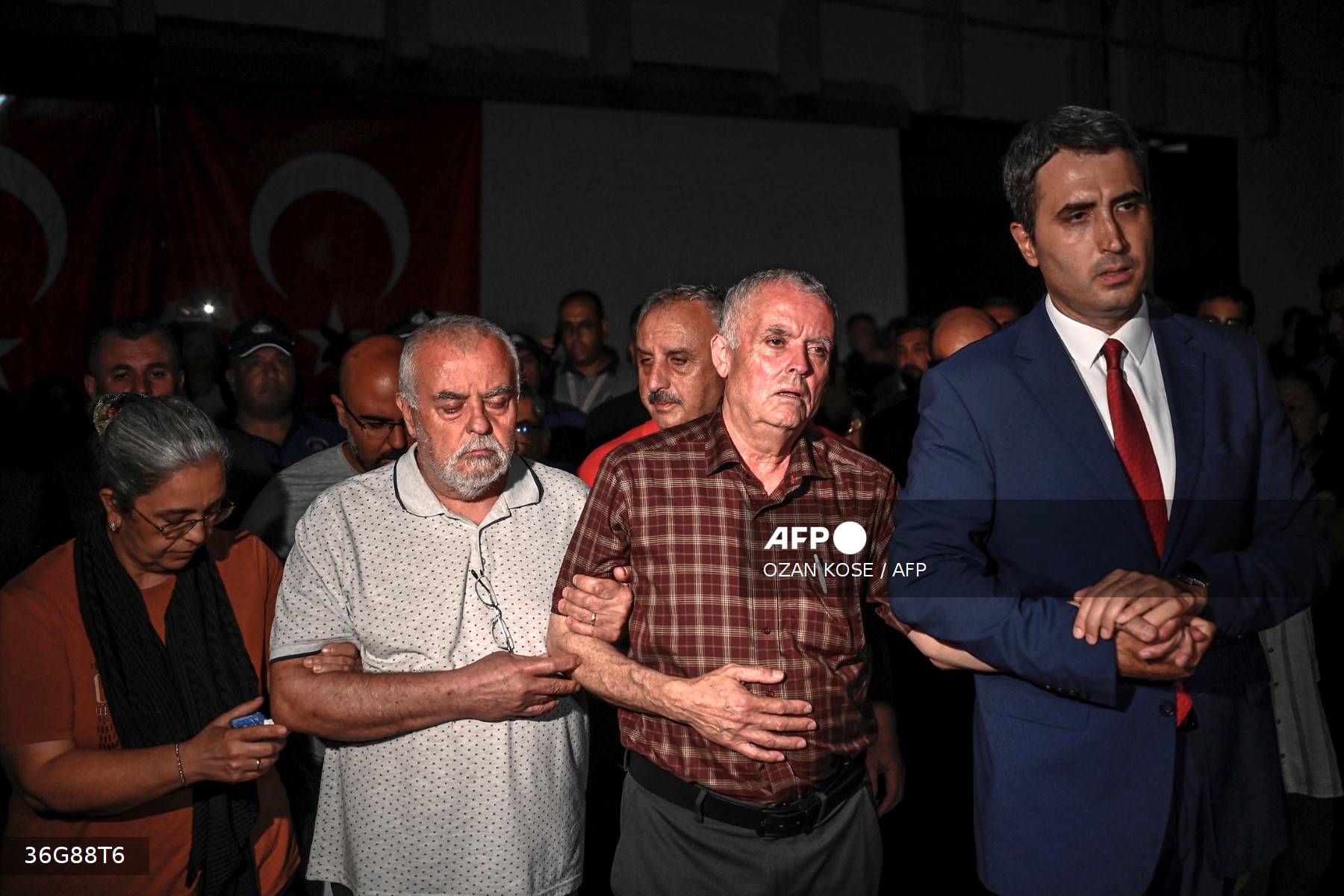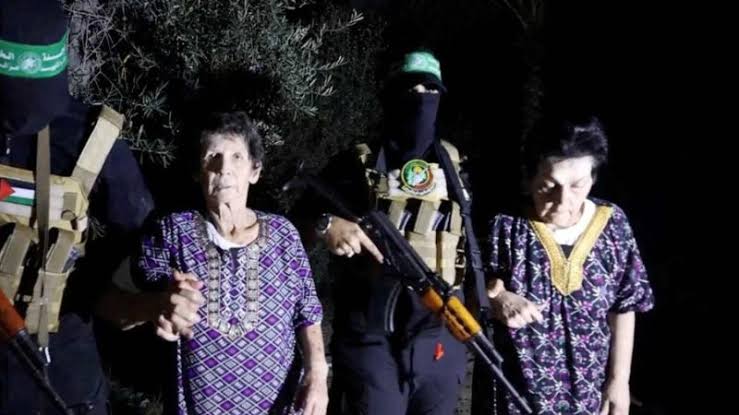Foreign
The Killer Quintet

The Killer Quintet
By PR Wire
Two years ago, the Human Sciences Research Council (HSRC) and the Medical Council described the increase in Non-Communicable Diseases (NCDs) as an ‘emerging epidemic’ and the ‘biggest threat to South Africa’s health’.
NCDs are associated with the way a person or group of people live, which is why they are called lifestyle diseases. They include atherosclerosis, heart disease and stroke, obesity and type 2 diabetes as well as diseases associated with smoking, alcohol and drug abuse.
These diseases used to be prevalent mostly in higher income brackets but not anymore, they are wreaking havoc amongst all South Africans. The good news is that the damage resulting from unhealthy lifestyles can be stemmed.
Dr Morgan Mkhatshwa, Head of Operations at Bonitas Medical Fund talks about the top five lifestyle diseases and the effect they have on our bodies.
1. Lack of exercise
Not having enough exercise is a major cause of NCDs and chronic disease. Exercise can help reduce or prevent certain NCDs and chronic diseases..
Regular aerobic exercise may delay or prevent type 2 diabetes and has benefits for type 1 diabetes as well. Resistance training for type 2 diabetes results in a leaner body mass, blood sugar and blood pressure control.
Heart disease – reduces cardiovascular risk factors including increasing HDL (good cholesterol) while offsetting LDL (bad) cholesterol and reducing blood pressure
Cancer – can reduce the risk of several cancers including breast, colorectal, endometrial, kidney, liver, ovarian, pancreatic, prostate, gastric and oesophageal cancer
2. Stress
Your stress response is controlled by your hypothalamus, a tiny control tower in your brain. Stress hormones are sent out which trigger your body’s fight or flight response. Your heart may start beating faster, you breathe more quickly and your muscles tense ready for action. All good in an emergency but if it keeps firing all day it could put your health at serious risk.
Stress that’s left unchecked can contribute to many health problems, including high blood pressure, heart disease, obesity and diabetes.
3. Smoking
Thousands of people die every year from cancer, Chronic Obstructive Pulmonary Disease (COPD), heart attacks and strokes because of cigarette smoking. That’s the bad news. The good news is that it’s never too late to quit. Within 12 hours after your last cigarette your body will begin to heal itself. The levels of carbon monoxide and nicotine in your system will decline rapidly and your heart and lungs will begin repairing the damage caused by cigarette smoke.
Your risk of lung cancer starts to decline a year after you quit and, by the time you’ve been a non-smoker for 10 or 15 years, your risk of cancer is about the same as for people who have never smoked.
4. Alcohol
Over time, excessive alcohol consumption can lead to the development of chronic diseases and other serious problems including high blood pressure, heart disease, stroke, liver disease, digestive problems, cancer of the breast, mouth, throat, oesophagus, voice box, liver, colon and rectum.
Alcohol affects the body is a multitude of ways including:
The pancreas causing pancreatitis – alcohol-related liver disease and chronic liver inflammation which result in either low blood sugar (hypoglycaemia) too much sugar in the blood (hyperglycaemia) and may end up with complications related to diabetes
Your central nervous system – over time it affects your memory, ability to make rational choices and think clearly. Chronic heavy drinking can cause permanent brain damage
Your digestive system – over time, the tissues in your digestive tract get damaged and you can’t absorb nutrients properly, this results in malnutrition
Circulatory system – chronic drinking can affect your heart and lungs, giving rise to complications like high blood pressure, irregular heartbeat leading to heart attack and stroke and heart failure
Skeletal and muscle systems –can affect bone density and increase your risk of fractures as well as muscle weakness and atrophy
Immune system – drinking heavily reduces your body’s natural immune system which makes you more likely to develop pneumonia and tuberculosis
5. Poor nutrition
Poor eating habits include under or over-eating, not having enough of the healthy foods we need each day or consuming too many types of food and drink. Unhealthy eating habits can affect our nutrient intake, including energy (kilojoules) protein, carbohydrates, essential fatty acids, vitamins and minerals as well as fibre and fluid.
This can cause obesity, which the World Health Organization (WHO), says has reached epidemic proportions globally; diabetes, hypertension, high cholesterol, osteoporosis and cancer. All forms of malnutrition have become one of the biggest health problems globally.
By modifying your behaviour and adopting a healthier lifestyle damage can be curbed, you can improve both the quality of your life and your longevity.
Foreign
Israeli army vows to save hostages

Israeli army vows to save hostages
The Israeli army will use all means to bring back hostages still held in Gaza, its spokesman told a group of foreign journalists on Friday in the war-scarred city of Rafah.
“We need to do everything, everything we can, in all means, to bring them back home,” military spokesman Daniel Hagari told the journalists embedded with the Israeli army.
“This is one of the goals of the war, and we will achieve it.”
Rear Admiral Hagari was speaking in front of a shaft in the Tel al-Sultan neighbourhood of Rafah that connects to a tunnel where Israel says Hamas shot dead six hostages late last month.
Their deaths spurred an outpouring of grief in Israel as well as anger at the government, which critics say is not doing enough to reach a deal that would end the war in Gaza and secure the remaining hostages’ release.
The war was triggered by Hamas’s unprecedented attack on Israel, which resulted in the deaths of 1,205 people, mostly civilians, according to an AFP tally based on Israeli official figures. The count includes hostages killed in captivity.
The militants also seized 251 hostages, 97 of whom are still in Gaza, including 33 the Israeli military says are dead.
Israel’s retaliation has killed at least 41,118 people in Gaza, according to the territory’s health ministry. The UN human rights office says most of the dead have been women or children.
Israel has denied independent access to Gaza for international media during the war, now in its 12th month.
Rafah, in the far south of Gaza, has been hit hard by the fighting, and AFPTV footage on Friday showed streets lined with the bombed-out shells of buildings, many partially collapsed with rubble spilling into the streets.
Hagari said the destruction was intended to wipe out the network of tunnels under the city.
“You have a maze of tunnels here, a maze of tunnels here in Rafah, underneath the houses. This is why the destruction,” he said.
“There is even not one point left without a tunnel here in Rafah.
“In order to defeat (Hamas) we need to take control of this underground system.”
The army also showed journalists the Philadelphi Corridor, a narrow strip of land that has emerged as a key sticking point in talks towards a possible ceasefire mediated by Egypt, Qatar and the United States.
Israeli Prime Minister Benjamin Netanyahu said last week that retaining control of the corridor was important to stop any arms smuggling into Gaza from Egypt.
Hamas is demanding a complete Israeli withdrawal from the territory.
Foreign
Hamas Frees Two Israeli Women From Gaza

Hamas Frees Two Israeli Women From Gaza
Hamas on Monday (23 October) said it had freed two Israeli women who were among the more than 200 hostages taken during its 7 October rampage in southern Israel while sources said the US had advised Israel to hold off on a ground assault in the Gaza Strip.
“We decided to release them for humanitarian and poor health grounds,” Abu Ubaida, spokesman for the armed wing of the Palestinian Hamas militant group, said on Telegram.
The Israeli prime minister’s office issued a statement confirming that the women, whom it named as Nurit Cooper, 79, and Yocheved Lifshitz, 85, were handed over to the Israeli military and would be taken to a medical facility.
The two were kidnapped from Kibbutz Nir Oz, near the Gaza border, along with their husbands, who were still held by Hamas, it added. Hamas freed them after releasing an American woman and her daughter on Friday.
All four were seized in the 7 October cross-border assault in which the Islamist Hamas killed 1,400 people.
In public, the United States has stressed Israel’s right to defend itself but two sources familiar with the matter said the White House, Pentagon and State Department have stepped up private appeals for caution in conversations with the Israelis.
A US priority is to gain time for negotiations to free other hostages, especially after Friday’s unexpected release of Americans Judith and Natalie Raanan on Friday, said the sources, who spoke before the hostage releases were announced on Monday.
Asked about the possibility of a ceasefire, US President Joe Biden said: “”We should have those hostages released and then we can talk.”
Israel pounded hundreds of targets in Gaza from the air on Monday as its soldiers fought Hamas militants during raids into the besieged Palestinian strip where deaths are soaring and civilians are trapped in harrowing conditions.
Gaza’s health ministry said 436 people had been killed in bombardments over the last 24 hours, most in the south of the narrow, densely populated territory, next to which Israeli troops and tanks have massed for a possible ground invasion.
The Israeli military said it had struck more than 320 targets in Gaza over 24 hours, including a tunnel housing Hamas fighters, dozens of command and lookout posts, and mortar and anti-tank missile launcher positions.
The Israeli bombardment was triggered by the 7 October assault, the bloodiest episode in a single day since the state of Israel was founded 75 years ago.
With Gaza’s 2.3 million people running short of basics, European leaders looked set to follow the United Nations and Arab nations in calling for a “humanitarian pause” in hostilities so aid could reach them.
Foreign
Prince Williams Ends Homelessness In The Uk

Prince Williams Ends Homelessness In The Uk
PRINCE WILLIAMS– The Prince of Wales has visited Sheffield as he launches a five-year campaign to end homelessness in the UK.
The city is one of six places to benefit from Prince William’s charitable fund.
The project means there will be a team in Sheffield and funding for the council and other agencies to support those who don’t have a stable home.
Prince William visited a youth project in the city as part of his tour.
Young people from Reach Up Youth met with the royal visitor to share their stories and discuss the work the organization is doing to support those struggling.
In Sheffield, the prince’s scheme, Homewards, will focus on families experiencing hidden homelessness, including those living in temporary accommodations such as hostels and shelters.
The city council said it would also address an issue where a disproportionate number of people of black and minority ethnic backgrounds were becoming homeless.
The authority added that teams, made up of a range of partners, would “further strength their links and the ability to direct people to services that they might need”.
The council said the programme will aim to reach families before they risk losing their homes and plans on exactly how it will work are being developed over the coming months
.
Kate Josephs, chief executive for Sheffield City Council, said: “We are really proud that Sheffield has been selected to be part of Homewards.
“No one should find themselves in crisis, without a roof over their heads and this is an incredible opportunity to prevent people and families from becoming homeless.
“This programme, created by Prince William, will enable us to focus efforts, with much-needed financial backing, on getting people the help and support they need before they lose their homes.”
-

 celebrity radar - gossips6 months ago
celebrity radar - gossips6 months agoWhy Babangida’s Hilltop Home Became Nigeria’s Political “Mecca”
-

 society6 months ago
society6 months agoPower is a Loan, Not a Possession: The Sacred Duty of Planting People
-

 society5 months ago
society5 months agoReligion: Africa’s Oldest Weapon of Enslavement and the Forgotten Truth
-

 news6 months ago
news6 months agoTHE APPOINTMENT OF WASIU AYINDE BY THE FEDERAL GOVERNMENT AS AN AMBASSADOR SOUNDS EMBARRASSING













